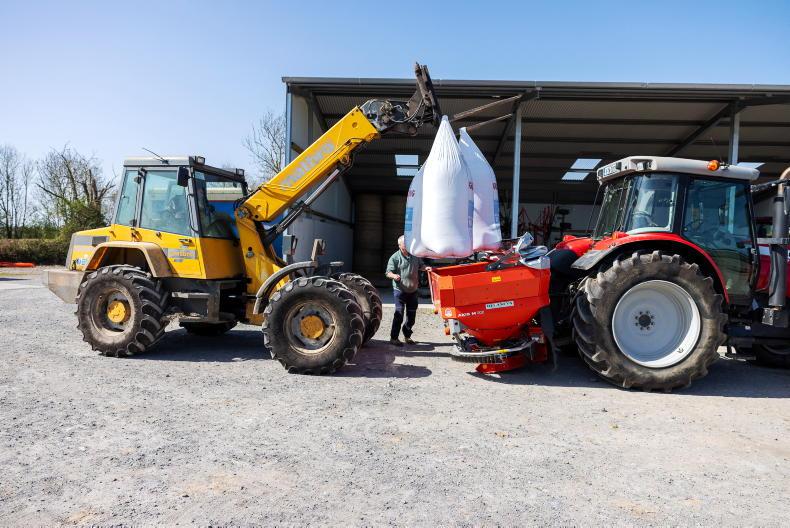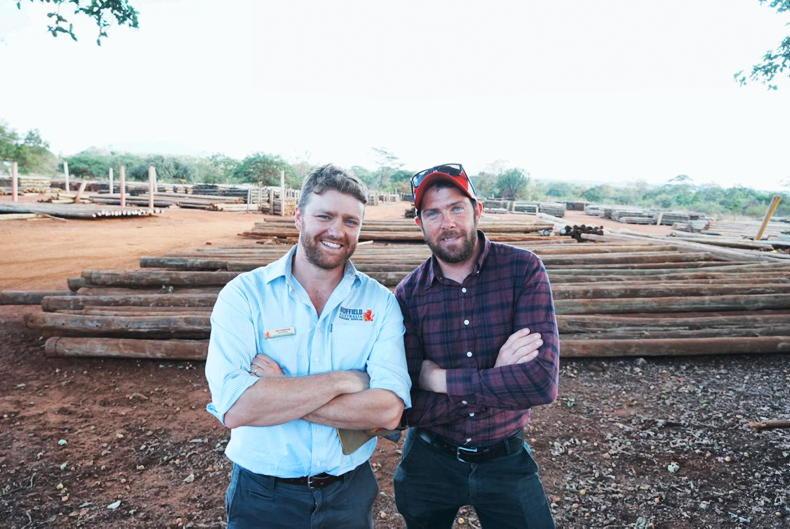The Nuffield Ireland ‘lunch and learn’ series runs all this week, featuring a 10-minute presentation at 1.30pm each day outlining the key findings of each scholar's Nuffield report. To register, visit www.nuffield.ie/lunchandlearn.
Alison Holmes, from Camross, Co Laois, as well as being a clinical tutor in physiotherapy in the School of Allied Health at the University of Limerick, also manages a dairy and beef farm in partnership with her father Brian in Laois.
Background
With a background in both farming and healthcare, Alison has become an advocate for farmer and rural population health and has been involved in many health promotion campaigns for farming and rural cohorts in collaboration with organisations such as Macra na Feirme, the IFA, sports partnerships and Young Farmer Skillnet.
Her report outlines that Irish farmers experience disproportionately high prevalence of cardiac disease, diabetes, musculoskeletal disorders and stroke compared with their peers and, according to recent research, are seven times more likely to die from cardiovascular diseases than those with salary-paid occupations.
Many studies show very poor health literacy amongst farmers
“Many studies show very poor health literacy amongst farmers, particularly in relation to nutrition," she said.
"Poor physical health has been linked to decline in mental health and decreased capacity for resilience.
"Improving the current status of Irish farmer health has the potential to impact on the sustainability of the farmer, recruitment and retention into farming as a career and improve public perception and the farmer image,” she said.
The main recommendations from her report include:
The health of farmers in Ireland should be prioritised, as they play a vital role in the economy, contributing to 2.5% of GDP in 2013 (Central Statistics Office, 2013). Funding for initiatives and interventions to achieve this should be assigned accordingly and a national body or inter-departmental collaboration should be established to oversee this.Specific health and activity promotion initiatives should be instigated within this population, along with identification of further research needs and requirements. This would be in line with the objective of the farm safety action plan to improve the health of Irish farmers and the aims of Healthy Ireland, the national framework for action to improve the health and well-being of people living in Ireland.Health literacy and self-management modules should be incorporated into all existing educational structures and curriculum within agriculture to enable culture and practice change.There is a need for the development of an objective tool to measure impact and outcomes of initiatives on farmer health and practice.A national steering group or alliance, comprised of all strategic partners and stakeholder representatives, and a national researcher collaboration, should be established to adopt a blended research and practical application focused approach to improving farmer health and well-being nationally. Sustainability of the farmer
“We frequently use the term sustainability in farming with reference to the environment, food production systems, animal agriculture and financial models.
"However, we rarely, if ever, refer to the sustainability of the farmer as an entity, farmer health and well-being, career longevity, adaptability and resilience, farming as an attractive career and the impact on public perception.
"I feel that it is pertinent to the industry that this aspect of sustainability be addressed. For farming to prosper, the farmer has to prosper.
"Therefore, the industry must prioritise farmer health and put the structures in place to optimise the health and well-being of our farming community,” she said.
The Nuffield Ireland ‘lunch and learn’ series runs all this week featuring a 10-minute presentation at 1.30pm each day outlining the key findings of each scholar's Nuffield report. To register visit www.nuffield.ie/lunchandlearn.
Read more
Farmer, vet and industry need to be 'at the table' to design health programmes
Nuffield scholars to present findings in virtual series
The Nuffield Ireland ‘lunch and learn’ series runs all this week, featuring a 10-minute presentation at 1.30pm each day outlining the key findings of each scholar's Nuffield report. To register, visit www.nuffield.ie/lunchandlearn.
Alison Holmes, from Camross, Co Laois, as well as being a clinical tutor in physiotherapy in the School of Allied Health at the University of Limerick, also manages a dairy and beef farm in partnership with her father Brian in Laois.
Background
With a background in both farming and healthcare, Alison has become an advocate for farmer and rural population health and has been involved in many health promotion campaigns for farming and rural cohorts in collaboration with organisations such as Macra na Feirme, the IFA, sports partnerships and Young Farmer Skillnet.
Her report outlines that Irish farmers experience disproportionately high prevalence of cardiac disease, diabetes, musculoskeletal disorders and stroke compared with their peers and, according to recent research, are seven times more likely to die from cardiovascular diseases than those with salary-paid occupations.
Many studies show very poor health literacy amongst farmers
“Many studies show very poor health literacy amongst farmers, particularly in relation to nutrition," she said.
"Poor physical health has been linked to decline in mental health and decreased capacity for resilience.
"Improving the current status of Irish farmer health has the potential to impact on the sustainability of the farmer, recruitment and retention into farming as a career and improve public perception and the farmer image,” she said.
The main recommendations from her report include:
The health of farmers in Ireland should be prioritised, as they play a vital role in the economy, contributing to 2.5% of GDP in 2013 (Central Statistics Office, 2013). Funding for initiatives and interventions to achieve this should be assigned accordingly and a national body or inter-departmental collaboration should be established to oversee this.Specific health and activity promotion initiatives should be instigated within this population, along with identification of further research needs and requirements. This would be in line with the objective of the farm safety action plan to improve the health of Irish farmers and the aims of Healthy Ireland, the national framework for action to improve the health and well-being of people living in Ireland.Health literacy and self-management modules should be incorporated into all existing educational structures and curriculum within agriculture to enable culture and practice change.There is a need for the development of an objective tool to measure impact and outcomes of initiatives on farmer health and practice.A national steering group or alliance, comprised of all strategic partners and stakeholder representatives, and a national researcher collaboration, should be established to adopt a blended research and practical application focused approach to improving farmer health and well-being nationally. Sustainability of the farmer
“We frequently use the term sustainability in farming with reference to the environment, food production systems, animal agriculture and financial models.
"However, we rarely, if ever, refer to the sustainability of the farmer as an entity, farmer health and well-being, career longevity, adaptability and resilience, farming as an attractive career and the impact on public perception.
"I feel that it is pertinent to the industry that this aspect of sustainability be addressed. For farming to prosper, the farmer has to prosper.
"Therefore, the industry must prioritise farmer health and put the structures in place to optimise the health and well-being of our farming community,” she said.
The Nuffield Ireland ‘lunch and learn’ series runs all this week featuring a 10-minute presentation at 1.30pm each day outlining the key findings of each scholar's Nuffield report. To register visit www.nuffield.ie/lunchandlearn.
Read more
Farmer, vet and industry need to be 'at the table' to design health programmes
Nuffield scholars to present findings in virtual series










SHARING OPTIONS